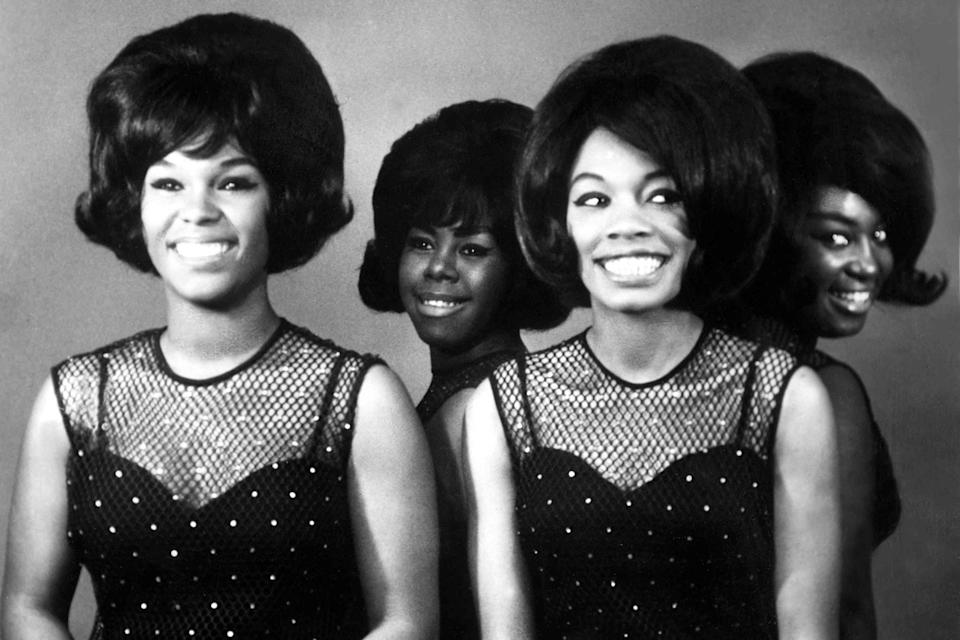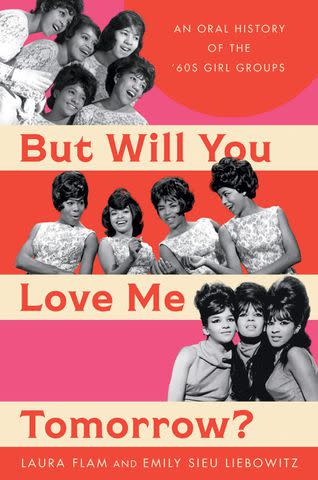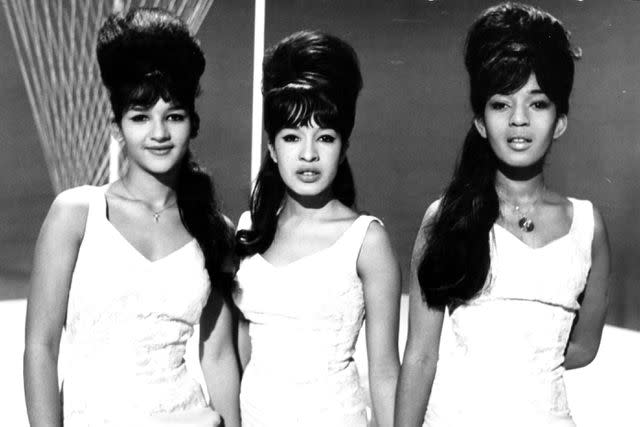Legendary '60s 'Girl Groups' Were Exploited and Largely Forgotten. A New Book Gives Them Their Due
"But Will You Love Me Tomorrow," by Laura Flam and Emily Sieu Liebowitz, celebrate the singers of some of America's most iconic songs

Everett/Shutterstock
The Shirelles in 1968The songs of the “girl groups” of the 1960s are an unforgettable part of Americana: Think “Chapel of Love,” by the Dixie Cups, or “Will You Love Me Tomorrow,” by the Shirelles.
Unfortunately, many of the singers themselves — a cohort of mostly underpaid Black women bound by exploitative contracts — don’t get nearly the same recognition. That’s what authors Laura Flam and Emily Sieu Liebowitz aimed to set right with their new oral history book, But Will You Love Me Tomorrow, out now from Hachette Books.
Culled from more than 100 interviews, But Will You Love Me Tomorrow gives these long-neglected artists their proper recognition — whether it’s celebrating their role in desegregating pop music by playing shows in front of integrated audiences or underscoring their bravery for touring in the Jim Crow South. It also offers an inside look at the music industry at the time, lending insight into why these singers were often treated as disposable.
“Maybe if they had lived in another era, the women of the girl groups would have been valued differently,” Flam and Liebowitz write. “But many of the young girls who started these groups were considered fleeting investments by the music industry that gave them remarkably shortened careers, and by a society that expected them to retire in order have children and work closer to home."

Hachette Books
Related: Diana Ross Sings Happy Birthday to Beyoncé During Surprise Appearance at Los Angeles Tour Stop
Liebowitz, whose book of poems, National Park, was longlisted for the Believer Book Award, answered questions about her book from PEOPLE via email.
PEOPLE: What inspired the two of you to write this book?
Liebowitz: My co-author Laura Flam and I are huge fans of the girl group sound — and we bonded by attending the concerts of the groups who still tour. When we went to learn more about the women who sing our favorite songs, the information simply wasn’t out there. We decided to write But Will You Love Me Tomorrow: An Oral History of the ‘60s Girl Groups to record this important era in music history and honor the women who sang the songs that define it.
PEOPLE: What do you hope readers will take away from the book?
Liebowitz: The songs of the girl groups are some of the most famous pop songs of all time but the groups’ stories and names really aren’t well-known.
Never miss a story — sign up for PEOPLE's free daily newsletter to stay up-to-date on the best of what PEOPLE has to offer, from celebrity news to compelling human-interest stories.
So I hope after reading our book, maybe when a song like “He’s So Fine” is in a movie like The Fabelmans, people will be able to say “Hey, that’s the Chiffons!” That when they hear “Going to the Chapel” at a wedding, they’ll know the Dixie Cups are serenading the bride down the aisle. Or when they hear “Will You Love Me Tomorrow” at the supermarket, they will know that’s the Shirelles.

Michael Ochs Archives/Getty
The Ronettes in 1964Related: Ronnie Spector of the Ronettes Dead of Cancer at 78: 'Lived Her Life with a Twinkle in Her Eye'
PEOPLE: Why do you think now is the time to tell this story?
Liebowitz: While the songs they created and sang are timeless, the singers themselves are not. While some of the original artists are still performing, many can no longer do that and many others, unfortunately, are no longer with us. We want readers and audiences to be able to learn more about their contributions to the music industry while the remaining women are still here to receive that recognition.

Joshua Simpson; London King
Emily Sieu Liebowitz; Laura FlamRelated: 12 Girl Groups Who Have Made Their Mark on the Music Industry
PEOPLE: What is something surprising you learned while writing the book?
Liebowitz: I was surprised by how many celebrities got their start in the girl groups. Obviously Diana Ross of the Supremes and Ronnie Spector of the Ronettes, but other celebrities I would never have thought of. Jimi Hendrix played as a backing musician for many of the New York girl groups, Cher sang background on The Ronettes’ “Be My Baby,” and Billy Joel played on the demos of “Remember (Walking in the Sand)” by The Shangri La’s.
But Will You Love Me Tomorrow is out now from Hachette Books.
For more People news, make sure to sign up for our newsletter!
Read the original article on People.

